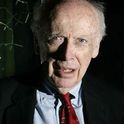Just a few days ago a large accounting firm, PwC, revealed it was developing facial recognition technology that could allow it to monitor staff working at home, and even be used to see when they took toilet breaks.
It was just one of a slew of news stories that show our right to privacy is being eroded right in front of our eyes.
A desperate need to adapt to Covid-19 has meant a whole set of tools has been introduced or expanded in both public spaces and in our homes. Apps, drones and facial recognition are all lined up to find out more about us, but sometimes we are giving away far more than we want to, without even knowing.
All over the world we are becoming more surveilled as we sign up to technologies that can report back on where we are, and potentially who we meet.
For a report for Index on Censorship magazine, “Private Lives, What Happens When Our Every Thought Goes Public,” we spoke to citizens around the world who were concerned about how their government is gathering information and what might happen to it.
In Hong Kong, for instance, free, re-usable masks are available to all if they register with ID cards.Residents told the magazine that they were thinking twice before signing up for the free masks, because the information could be used for other purposes. They also worried about the potential of a tracking app they are mandated to use if they leave the city.
In Turkey, another app is causing concern. While the Life Fits Home app allows patients to monitor their recovery, it also allows the state to monitor their movements, admitted health minister Fahrettin Koca in April.
Meanwhile President Recep Tayyip Erdoan clearly sees coronavirus as an opportunity to use his power to purge any awkward opposition, saying in April that he could get “rid of [Turkey’s] media and political viruses.”
Human rights activists worry about how the data will be used, and if this is the final straw for privacy and the idea of your home as a safe place where you can still speak freely. This is a country where scores of academics and journalists have been imprisoned in the past few years, and where the government has been trying to force Facebook and WhatsApp to store their data inside the country, where it can demand legal access. In China, one reporter for the Index survey, Tianyu M Fang, found himself confined to his home when an app inaccurately gave him a red health code. It turned out it was just a bug in the system. For a few days he fretted about who he could call, but found no one.
But the surveillance army isn’t just about apps; drones are increasingly released to do the work of the state, shouting commands from the skies or tracking people who break the rules. In March in Neath, south Wales, police were using drones to issue pandemic-related safety advice.
Drones can do more than you might think. Manufacturer Draganfly told Index that the technology could monitor people’s temperatures and heartbeats from 200 metres away. They have been rolling out across the world during the pandemic, often with very little law in place to restrict their use.
Some countries, or parts of them, are showing more desire to legislate how these prying eyes can be used and for how long. Washington was the first US state to pass a law restricting government, though not corporate, use of facial recognition, to strike a balance with human rights. Some countries such as South Korea and Australia, but not the UK, have passed new laws on how data collected by the government relating to infectious diseases can be used, and when it can’t. The South Korean law says: “information shall be destroyed without delay when the relevant tasks are completed.”
Public trust is essential when tackling a crisis. Governments need to consider how these prying technologies are used, not just now but in the future.
As Indian lawyer and justice HR Khanna, who stood up for civil liberties during the emergency in India in the 1970s, noted: “Eternal vigilance is the price of liberty.”Wise words that continue to have resonance today.
Rachael Jolley is editor-in-chief of Index on Censorship, and the report “Private Lives, What Happens When Our Every Thought Goes Public,” is found in its new magazine












